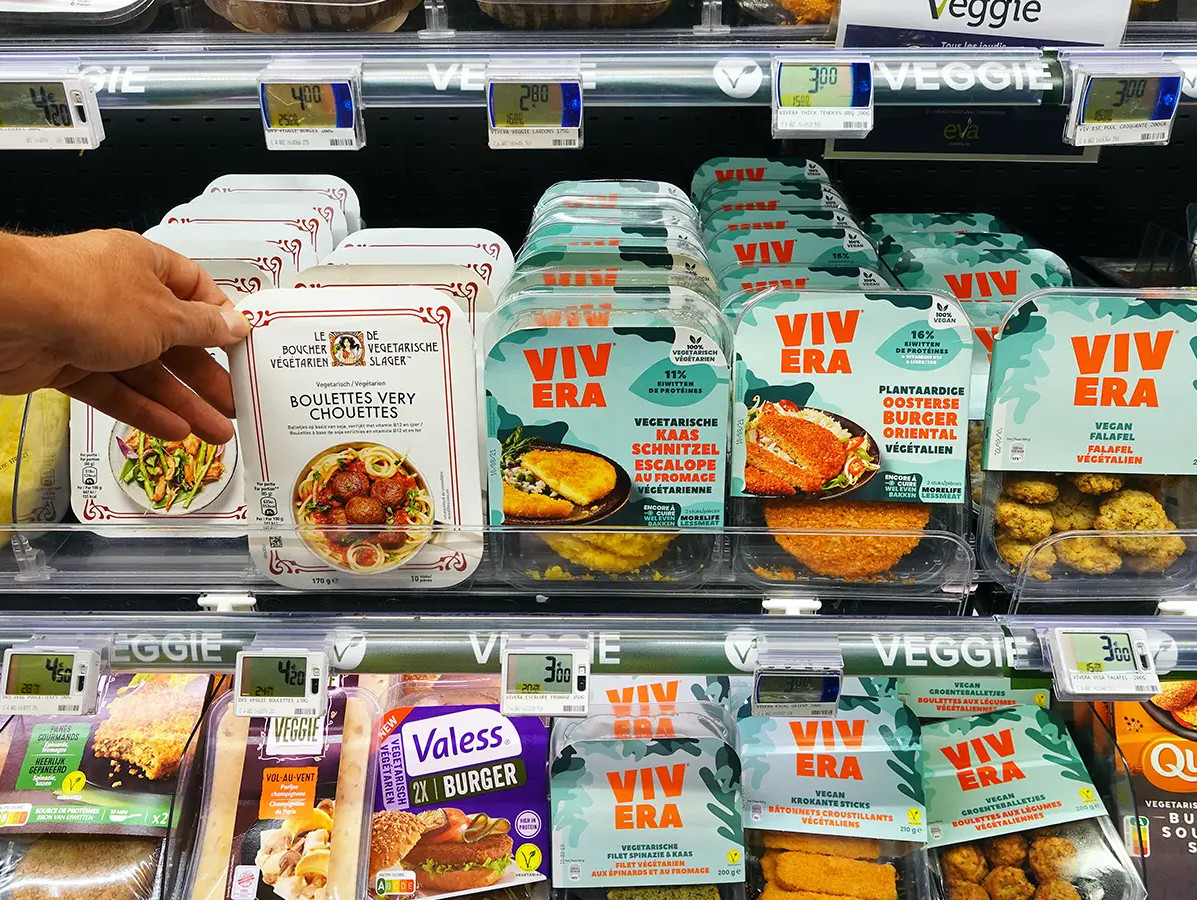
Plant-based proteins are gaining ground on supermarket shelves: in 2024, they accounted for 38% of online product ranges. A year earlier, that figure stood at 32%. Yet consumption remains largely unchanged. Dutch consumers still get 60% of their proteins from animal sources and only 40% from plant-based ones. In short, the Dutch still have a strong appetite for meat, cheese and dairy.
These figures come from the 2024 Protein Monitor by Wageningen Economic Research, commissioned by the Ministry of Agriculture, Fisheries, Food Security and Nature. The government aims to achieve a 50/50 split between plant-based and animal-based protein by 2030. “Supermarkets play an important role in the protein transition,” says lead researcher Marleen Onwezen. “But the current norm is still animal-based. A wider range alone won’t change that.”
On average, plant-based protein products are now 27% cheaper than their animal-based counterparts, compared to a 17% price gap last year. Still, the cheapest option on the shelf is often an animal product. On top of that, meat and dairy dominate in marketing and communication. This influences consumer behaviour. We know what to expect from meat, cheese and dairy in terms of taste and texture. That makes them the default choice.
At home or in social settings, people tend to opt for animal-based products. At work, it’s a different story. “That’s where the 50:50 target is nearly being met,” Onwezen notes.
According to the researchers, legumes, nuts and seeds offer the greatest potential for changing consumer habits. Still, many people stick to smaller portions of meat or only choose meat with a sustainability label.
Source: Wageningen Economic Research